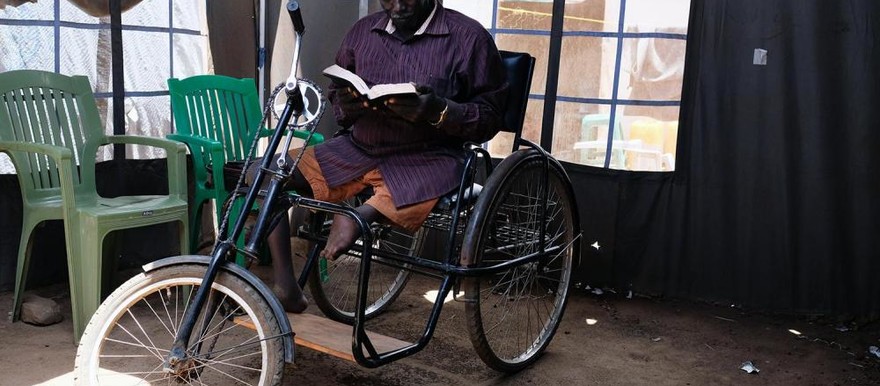Some South Sudanese rights activists have expressed concern over the lack of awareness of the rights of Persons With Disabilities (PWDs) enshrined in the country's constitution, exposing them to discrimination.
Speaking to Radio Tamazuj this week, a legal advisor and representative of the Federation of the Disabled in South Sudan, Mott Lewis says the South Sudan Constitution guarantees the protection and promotion of all human rights, including the rights of persons with disabilities.
But he says, despite this fact, persons with disabilities still face several challenges in their lives due to ignorance.
“The society does not know that this person has a right. The disabled person himself does not know that he has a right, and scenario number three, the disabled person knows that he has right, and the institution or society knows that, but they do not know how to protect these rights," Lewis explained.
He urged that persons with disabilities be included in problem-solving because they understand their challenges better.
Lewis noted that they will cooperate with other legal and rights groups in the country to ensure the rights for people with disabilities are upheld and known to all.
A South Sudanese psychologist and counselor for people with disabilities, Zakia Musa, says PWDs mostly face stigma from the community and family members forcing them to isolate themselves.
She also acknowledged that some cultural practices do not encourage the integration of PWDs into society. Zakia adds that society focuses on the disabilities rather than the contributions PLWs can bring.
“Women with disabilities do not enjoy their simple rights of making romantic relationships and marriage because of society's negative view. our rights are indigestible and not recognized by society," she observed.
Raphael William Warigo, an activist living with disability says, "Rights are things that a person is born with and enjoys in his society, but because of selfishness and discrimination as disabled people, we do not enjoy our full rights."
Deng John Deng is a lawyer and rights activist for the PWDs. He says Article 31 of the South Sudan Constitution stipulates the rights of people with special needs.
"The article stipulates the protection of people with special needs, their integration into society, their good treatment and respect, and their non-discrimination based on disability because they are part of society," he explained.
He adds, "These rights should be observed by all institutions in the country. As stipulated in the revitalized peace agreement, women must be represented by thirty-five percent, so the disabled must be represented in a specific proportion to be integrated into society."
Lual Nyok Deng, a civil society activist, and legal advisor says the laws are there but implementation has been a challenge.
He believes the people with disabilities must unite and stand up to defend their rights.
Esther Kiri, the Undersecretary of the Ministry of Social Welfare, says that the government is working to protect and promote the rights of PWDs per international and local laws by enacting laws and developing practical plans to protect the disabled in South Sudan.




